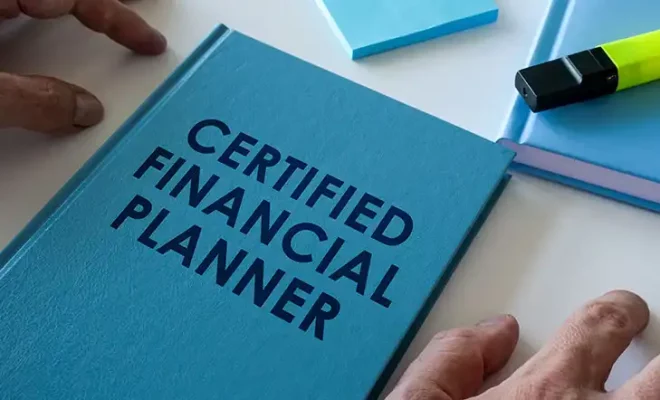How to Ensure That Your Assets Don’t Go Unclaimed?

Assets are priced possessions regardless of whether they are inherited or self-earned. Over the course of accumulating multiple assets like real estate, fixed return investments, retirement accounts, insurance plans, etc., you may lose track of things in routine chores. Some people also spend their entire lives building up an empire for their family without letting them know of their financial endeavours.
When families are not fully aware of the financial legacy that awaits them, it can be hard for them to claim their rightful inheritance. Hence, it is essential to take specific measures that ensure these assets are not left unclaimed.
To begin with, here are some insights on unclaimed assets:
Table of Contents
What are unclaimed assets?
Unclaimed assets are those financial assets that have not been used or accessed over a considerable period of time due to loss of ownership or unknown ownership. These may include assets like:
- Treasury bonds
- Retirement funds
- Paychecks
- Bank cheques
- Bank accounts
- Insurance payments
- Refunds and overpayments
- Investments like bonds, stocks, mutual funds
- Security deposit refunds
The asset classes mentioned above are some of the most commonly reported unclaimed asset types as per state agencies. Several other forms of unclaimed money also exist in the markets such as an unclaimed paycheck from a previous employer, trust distributions, life insurance payouts, utility payment refunds, etc.
The following measures can be taken to ensure that your hard-earned assets do not go unclaimed or end up in a welfare fund.
1. Include family
When it comes to financial assets, your family is your primary beneficiary. Hence, it becomes necessary to let them know what is in store for them. If you do not feel comfortable sharing intricate details with your children, you can involve your spouse or parents in significant decisions.
In addition to this, information sharing should be a detailed activity. You must dive deeper and mention all insurance policies, real estate assets, bank accounts, taxes, returns, debts, and loans, etc.
2. Keep a log of every important detail
Although it may sound outdated or old-fashioned, one of the surest ways of passing on desirable information is to log it in a book or a personal diary. Note down every single password, account number, pin, policy number, investment detail, insurance scheme, names and addresses of lenders and borrowers, and the details of all real estate properties. This logbook can include all the information that you think is essential and would be required by your heirs in your absence. It is also crucial to limit the access of this logbook to ensure the security of these details.
3. Keep updating your entries
Whether it is the addition of mutual fund investments, purchase of a property, one more insurance policy, or a new retirement account, make sure that you update every single addition in your logbook. You must also share this information with your family members as and when you invest in them. If you do this before making a financial decision, you can also get their point of view on a particular asset.
4. Stay updated with financial mails and messages
Very often, people ignore or delete business emails without reading them. However time-consuming it may seem, make sure you always read a mail from your financial service provider as it may contain an important piece of information. Also, whenever there are fund house proxy ballots, make sure to vote. Not only will you have a say in the final decision, but this will also keep your account active for future correspondences.
5. Safeguard your documents
Natural calamities like floods and storms or accidental fire incidents can take a toll on man and matter. Under unfortunate circumstances, your house can perish, leaving no proof of your investments and estate. Make sure you keep duplicate copies of essential documents in a safe place that is accessible to your family.
6. Check all your accounts regularly
Make it a routine to revisit all your financial accounts and reports at least once a year. You can fix a routine as per your convenience. This will keep your accounts active, updated, and you will also have a physical transcript of your transactions for documentation purposes.
7. Be prompt in check deposits
A large number of checks go unclaimed every year. The main reason behind this is the delay in depositing them. Once you have crossed the time limit, the instrument is of no use. You will have to get a new check issued from the issuer, which is a long and time-consuming process. Make sure to promptly deposit all your cash slips and checks to claim the money.
8. Keep your credentials updated
If you are in a transferable job and travel a lot, you must inform all your financial service providers of your latest address and related credentials. This will be updated in your bank logbooks and at other financial institutions. They should ideally be able to reach you at all times. This is important for receiving paychecks and reimbursements by post. Updating your credentials is also helpful in safeguarding your privacy as it ensures that your documents are not lost or handed over to another person.
9. Make and update your will
Most importantly, you must possess a will to ensure that your estate goes to your beloved beneficiaries without any legal intervention. You must also be mindful to update the names of your beneficiaries in all your accounts, insurances, and other important documents. As the size and structure of your family change, so will your legal and financial responsibilities.
To sum it up
Building an estate requires a strict financial routine. You save throughout your lifetime to ensure that your family enjoys every bit of comfort with or without you. However, not documenting your assets properly or leaving them unclaimed can deprive them of their rightful inheritance.
To ensure your assets do not go unclaimed, you need to plan your estate efficiently. You can consult financial advisors for professional guidance on the subject.

















